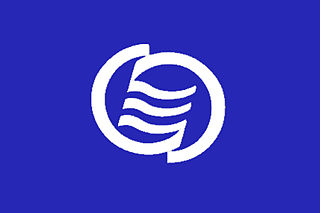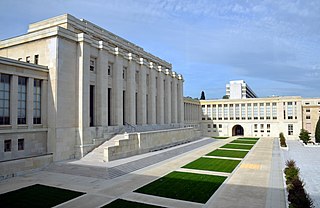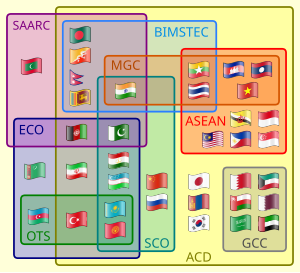
The foreign relations of Finland are the responsibility of the president of Finland, who leads foreign policy in cooperation with the government. Implicitly the government is responsible for internal policy and decision making in the European Union. Within the government, preparative discussions are conducted in the government committee of foreign and security policy, which includes the Prime Minister and at least the Minister of Foreign Affairs and the Minister of Defence, and at most four other ministers as necessary. The committee meets with the President as necessary. Laws concerning foreign relations are discussed in the parliamentary committee of foreign relations. The Ministry of Foreign Affairs implements the foreign policy.

Foreign relations of Kazakhstan are primarily based on economic and political security consideration. The Nazarbayev administration has tried to balance relations with Russia and the United States by sending petroleum and natural gas to its northern neighbor at artificially low prices while assisting the U.S. in the War on Terror. Kazakhstan is a member of the United Nations, Collective Security Treaty Organization, Organization for Security and Co-operation in Europe, North Atlantic Cooperation Council, Commonwealth of Independent States, the Shanghai Cooperation Organisation, and NATO's Partnership for Peace program. Kazakhstan established a customs union with Russia and Belarus which eventually became the Eurasian Economic Union. President Nazarbayev has prioritized economic diplomacy into Kazakhstan's foreign policy.

Foreign relations of Latvia are the primary responsibility of the Ministry of Foreign Affairs. Today's Republic of Latvia regards itself as a continuation of the 1918–1940 republic. After the declaration on the restoration of its full independence on August 21, 1991, Latvia became a member of the United Nations on September 17, 1991, and is a signatory to a number of UN organizations and other international agreements. Latvia welcomes further cooperation and integration with NATO, European Union, OECD and other Western organizations. It also seeks more active participation in UN peacekeeping efforts worldwide.

After achieving independence from the Soviet Union, the Republic of Moldova established relations with other European countries. A course for European Union integration and neutrality define the country's foreign policy guidelines.
Iceland took control of its foreign affairs in 1918 when it became a sovereign country, the Kingdom of Iceland, in a personal union with the King of Denmark. As a fully independent state, Iceland could have joined the League of Nations in 1918, but chose not to do so for cost reasons. It negotiated with Denmark to initially carry out most of its foreign relations, while maintaining full control. Denmark appointed a diplomatic envoy (Ambassador) to Iceland in 1919 and Iceland reciprocated in 1920, opening an Embassy in Copenhagen. Iceland established its own Foreign Service in April 1940 when Denmark became occupied by Nazi Germany and ties between the two countries were severed. The Republic of Iceland was founded in 1944. The Icelandic foreign service grew slowly in the post-WWII period, but increased rapidly after the mid-1990s. Iceland's closest relations are with the Nordic states, the European Union and the United States. Iceland has been a member of the United Nations since 1946. Iceland was a founding member of the World Bank in 1946 and NATO in 1949. In terms of European integration, Iceland was a founding member of the OEEC in 1948 and the Nordic Council in 1952, it joined EFTA in 1970, was a founding member of the CSCE in 1973 and the EEA in 1992 and joined Schengen in 1996.

The Shanghai Cooperation Organisation (SCO) is a Eurasian political, economic, international security and defence organization established by China and Russia in 2001. It is the world's largest regional organization in terms of geographic scope and population, covering approximately 80% of the area of Eurasia and 40% of the world population. As of 2021, its combined GDP was around 20% of global GDP.

The foreign relations of Canada are Canada's relations with other governments and nations. Canada is recognized as a middle power for its role in international affairs with a tendency to pursue multilateral and international solutions. Canada's foreign policy based on international peacekeeping and security is carried out through coalitions, international organizations, and the work of numerous federal institutions. Canada is often called upon to serve as a mediator in international conflicts. The strategy of the Canadian government's foreign aid policy reflects an emphasis to meet the Sustainable Development Goals, while also providing assistance in response to foreign humanitarian crises. The Canadian Security Intelligence Service (CSIS) is tasked with gathering and analyzing intelligence to prevent threats such as terrorism, espionage, and foreign interference, while the Communications Security Establishment (CSE) is focused on cyber security and protecting Canada's digital infrastructure.

The Association of Caribbean States is an advisory association of nations centered on the Caribbean Basin. It was formed with the aim of promoting consultation, cooperation, and concerted action among all the countries of the Caribbean coastal area. The primary purpose of the ACS is to promote greater trade between the nations, enhance transportation, develop sustainable tourism, and facilitate greater and more effective responses to local natural disasters.

The Stability Pact for Southeastern Europe was an institution aimed at strengthening peace, democracy, human rights and economy in the countries of South Eastern Europe from 1999 to 2008. It was replaced by the Regional Cooperation Council (RCC) in February 2008. The RCC replaced it because it is more "regionally owned" than the Stability Pact, which was driven more by outside partners such as the EU.
1 These countries are currently not participating in the EU's single market (EEA), but the EU has common external Customs Union agreements with Turkey, Andorra and San Marino. Monaco participates in the EU customs union through its relationship with France; its ports are administered by the French. Vatican City has a customs union in effect with Italy.
2 Monaco, San Marino and Vatican City are not members of Schengen, but act as such via their open borders with France and Italy, respectively.
3 Switzerland is not an official member of EEA but has bilateral agreements largely with same content, making it virtual member.

An international organization, also known as an intergovernmental organization or an international institution, is an organization that is established by a treaty or other type of instrument governed by international law and possesses its own legal personality, such as the United Nations, the World Health Organization, International Union for Conservation of Nature, and NATO. International organizations are composed of primarily member states, but may also include other entities, such as other international organizations, firms, and nongovernmental organizations. Additionally, entities may hold observer status. An alternative definition is that an international organization is a stable set of norms and rules meant to govern the behavior of states and other actors in the international system.

The Ministry of Foreign Affairs of the Republic of Serbia is the ministry in the government of Serbia which is in the charge of maintaining the consular affairs and foreign relations of Serbia. The current minister is Marko Đurić, in office since 26 October 2022.

Belgian–Turkish relations are foreign relations between Belgium and Turkey. Belgium has an embassy in Ankara, a consulate–general in Istanbul and two consulates in Antalya and İzmir. Turkey has an embassy in Brussels and a consulate–general in Antwerp.
Canada is a member of various international organizations and forums. Canada was a founding member of the United Nations in 1945 and formed the North American Aerospace Defense Command together with the United States in 1958. The country has membership in the World Trade Organization, the Five Eyes, the G7 and the Organisation for Economic Co-operation and Development (OECD). The country joined the Organization of American States (OAS) in 1990, and seeks to expand its ties to Pacific Rim economies through membership in the Asia-Pacific Economic Cooperation forum (APEC). Canada ratified the Universal Declaration of Human Rights in 1948, and seven principal UN human rights conventions and covenants since then. As of 2023, Canada is a signatory to 15 free trade agreements with 51 different countries, and has diplomatic and consular offices in over 270 locations in approximately 180 countries.
Ambassador Ersin Erçin is a senior Turkish diplomat, with an extensive experience in multilateral diplomacy particularly on matters of international, Euro-Atlantic and Eurasian security, disarmament, and economic and environmental security.

Mikheil Janelidze is a chairman of Center for European Governance & Economy. He is a former Georgian government official who served as Vice Prime Minister (2017–2018), Minister of Foreign Affairs (2015–2018), First Deputy Minister of Foreign Affairs (2015) and Deputy Minister of Economy and Sustainable Development of Georgia (2011-2015).
Since Kosovo's declaration of independence from Serbia, international recognition of Kosovo has been mixed, and the international community continues to be divided on the issue. The Republic of Kosovo is member of some international intergovernmental and international non-governmental organisations.














